Interview | Word of mouth rises and falls! Why is Chang ‘an Three Wan Li?
Special feature of 1905 film network Animated movies live up to expectations!Word-of-mouth counterattack, Douban score rose from 8 points to 8.1 points, temporarily ranking the highest word-of-mouth movie in summer file.
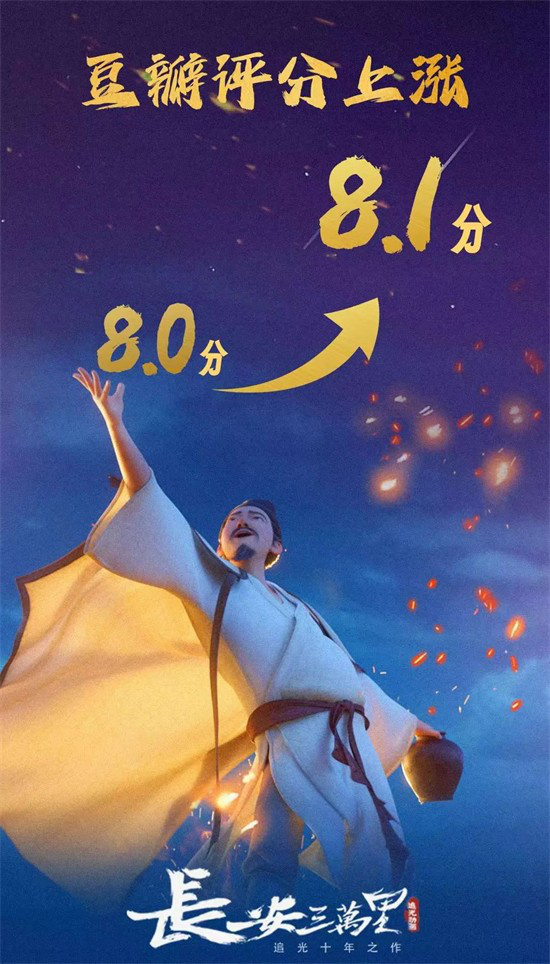
Since the release, the box office has accumulated nearly 300 million. Judging from the platform’s forecast box office, the film has the opportunity to break the historical box office record of light-chasing animation.
Three Wan Li in Chang ‘an, as the first work in the series of "New Culture", takes the audience back to the prosperous Tang Dynasty with one Tang poem after another and the friendship between Gao Shi and Li Bai spanning decades as the axis, and feels the magnificent group of talented people and the unique talent and ambition of these stars in the bright era.

If the story brings up the characters, then the brush will make the characters more vivid, the computer technology will make the characters more vivid, and the voice actor will use the sound to make these characters completely vivid and three-dimensional.
In the interview with the 1905 film network, the young and middle-aged Gao Shi’s voice actor and the young and middle-aged Li Bai’s voice actor "embraced each other", and even more bluntly said that they could complete the voice recognition recognized by the audience today, largely due to the scriptwriter’s setting of the story and the design of emotion itself.
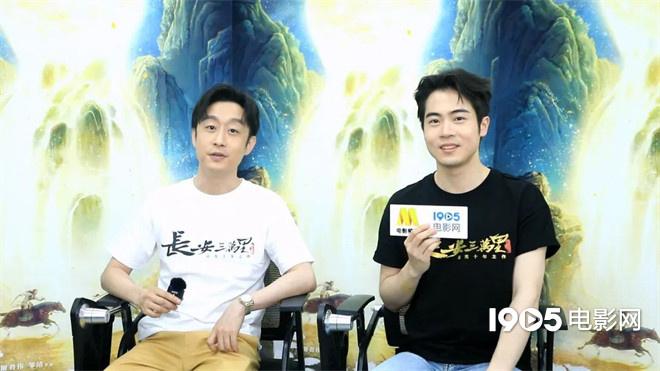
"This time I tried to pull Li Bai out of the aura of Shi Xian and treat him as an ordinary person for everyone to understand and know." Ling Zhenhe said.
01.
Dubbing pursues adaptation, but in the production of animated films, for the director’s creation, it is necessary to find a dubbing actor to "base" and audition in advance.
Ling Zhenhe was not Li Bai at the beginning of the audition, but Cheng Jianjun. After the recording, he asked the director what other roles could be auditioned. Because it was a story of the Tang Dynasty, there must be many roles. He thought that Li Bai or many voice actors were interested. As a result, no one had tried. "Then try it."
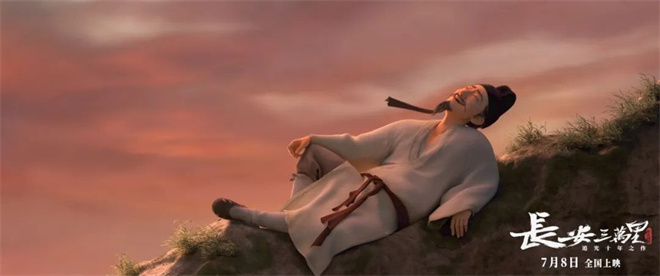
It’s just that in the production of animated films, the roles of voice actors may not necessarily be theirs after the audition.That process has a vague sense of confusion for the voice actor. At that time, there was no picture, and the director could only tell the actor the imaginary picture through words or dictation.
Both Yang Tianxiang and Ling Zhenhe instinctively gave emotional direction in the early stage of audition. "For example, the scene where young Gao Shi and Li Bai met in the grass only wrote a big background in the grass reeds, but how to ride and whip, how to misunderstand, is actually not set. Our voice actors can only discuss every line and make a preliminary design of the distance and basic emotions of the characters at that time. "
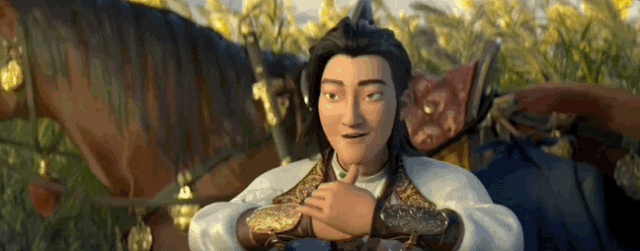
From the beginning of the audition, the two actors grew up with the role a little bit, which also provided a lot of creativity for the creation of the role. "In this way, everyone became more and more cordial and slowly grew up with the role." Yang Tianxiang regrets.
In the character design process of light-chasing animation, authors such as voice actors and art teachers will be invited to participate and inspire each other.
The art teacher will add gestures and accessories appropriately according to the language feeling of the actors. "When these details come out, we will make corrections according to this, and after repeated revisions, it will probably undergo substantial revisions in the third to fourth editions, and finally this image." Yang Tianxiang, who has cooperated deeply with the light-chasing animation from the beginning, is now the dubbing director of the light-chasing animation, once again witnessing the growth of his role.
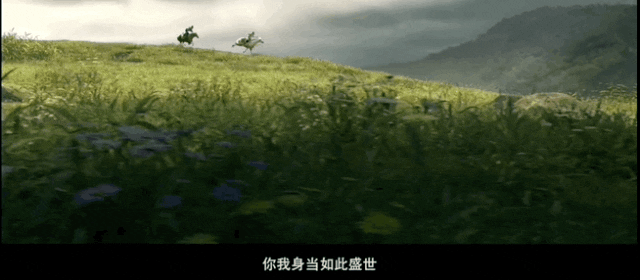
02.
Just different from the roles completed by the two voice actors, Li Bai and Gao Shi are both real figures in history and the most familiar strangers to the audience. When Yang Tianxiang and Ling Zhenhe chose to play these two roles by voice, it was a breakthrough for themselves.
Especially for Ling Zhenhe, "recording Li Bai is a breakthrough in itself."It is true that compared with Gao Shi, Li Bai’s nationality is the absolute top flow. What’s more, no matter when he was in school, the public fantasized about him when he was reading poems, or in many film and television works, many actors interpreted him to a certain extent.
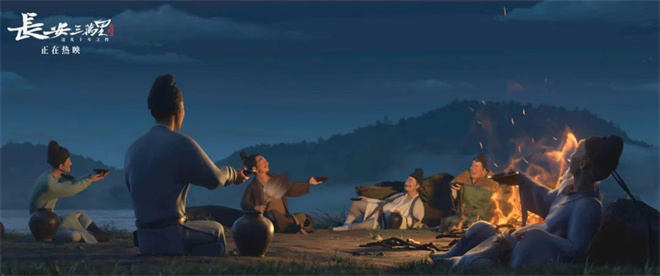
How to make Li Bai unique without violating everyone’s imagination has become the key to Ling Zhenhe’s dubbing.
After watching several episodes of Li Bai, Ling Zhenhe said, "I think I should put him on the attribute of’ human’ and treat him as an ordinary person for everyone to understand and know." It is true that in the public impression, Li Bai exists more as a "poetic immortal", but before that, he was also an ordinary person.
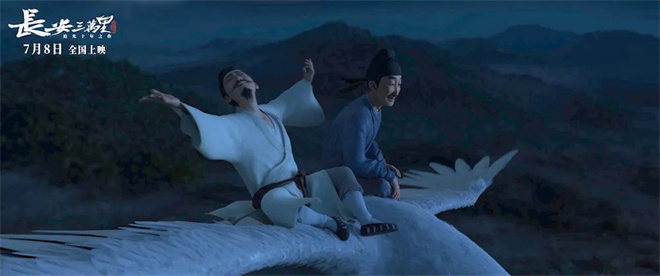
To this end, Ling Zhenhe and Yang Tianxiang designed many movements for Li Bai.In the film, Li Bai went to work, and as a result, the other party drove him away because he was the son of a businessman. "This story is actually not new in life, even if you shut the door, you will become angry from embarrassment, but this is Li Bai."
In the film, Li Bai turned and smashed the door, scolded the other party, laughed and left. "This is actually his very human place." The two studied Li Bai’s psychological fulcrum for a long time. "He has his own fragile, embarrassing and unresolved side."

In Ling Zhenhe’s view, "Poet Li Bai is a real person who has existed in history, not a 100% beautiful image that we simply imagined in our minds. We should allow him to have a different or even unbearable side."
As a dubbing director, Yang Tianxiang has been looking for a suitable proper limit for this role. "Let everyone understand his pain without hating this person, and don’t think he is a complete jerk."

The director of "Three Wan Li in Chang ‘an" revealed that Ling Zhenhe cried while dubbing the picture of "Coming into Wine".
In fact, when dubbing this story, he personally understood Li Bai’s feelings. "Nothing in this world is eternal, and no glory is immortal. As a great poet like Li Bai, he also became weak, and in" Going into Wine ",he admitted his weakness, and then he laughed at himself,’ All saints and sages in ancient times are lonely, and only the great drinkers are famous for all time.’ In fact, Li Bai spent the first half of his life pursuing being a sage and making contributions, but he couldn’t. "
03.
Many moviegoers know Yang Tianxiang because of Xu Xuan’s "juvenile voice" in White Snake: The Origin, and he also participated in the follow-up works of light-chasing animation to a greater or lesser extent, but the timbre required for the role is mostly "juvenile".
However, in "Three Wan Li in Chang ‘an", his voice "Gao Shi" spans from teenager to middle age, which is very challenging for Yang Tianxiang. "When I was writing in the middle period, I was still in a state of personal confusion." He even had the idea that if he couldn’t, he would find another actor to voice the middle-aged Gao Shi.
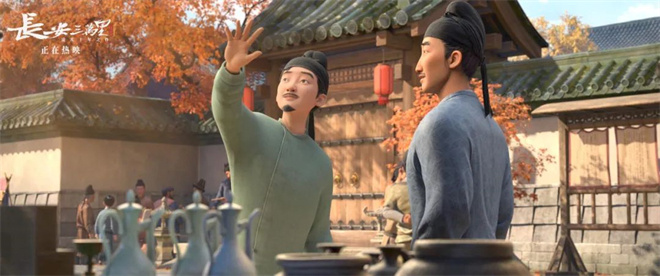
Before, the role of this age group was rarely touched by Yang Tianxiang. "It’s not that I don’t want to. I’m worried that I can’t reach that expressive force and the audience will be dissatisfied."
In the end, he found a fulcrum in the voice actor who is old and comfortable. "Although the two time and space are not separated, I didn’t think we had that close connection at first, and I didn’t think I could rely on the old comrades until I became deeply attached to this film."
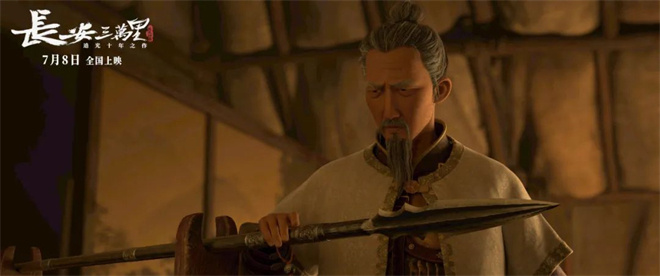
As a voice-over director, Yang Tianxiang was almost always present when every actor voiced. He especially likes chatting with Wu Junquan. "I can learn endless knowledge and language skills when chatting with Mr. Wu. At first, I only looked up to him. When I got closer and closer, I learned the feeling of his pronunciation and then tried to use it in the role. "
In Yang Tianxiang’s view, although he didn’t use everything he learned this time in the film, "but thanks to Mr. Wu’s participation in the recording, otherwise I don’t know how to interpret middle-aged Gao Shi."
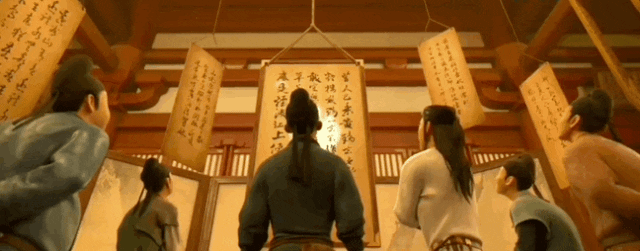
In any case, each actor perfectly interprets the historical sense of the characters in Chang ‘an Three Wan Li, which brings these characters closer to the audience and adds another layer of mystery to them.
This grand event that spans the Millennium has poems and stories. Fortunately, these good voices have injected another force into poetry.